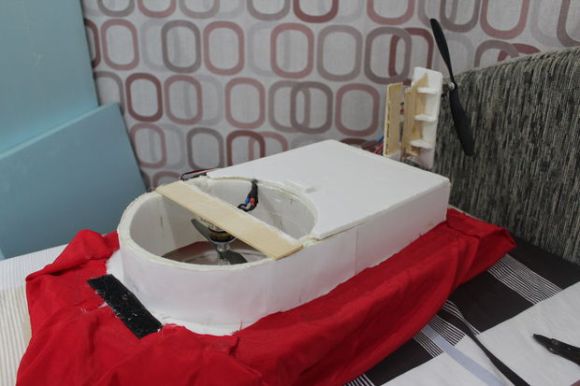
Looking for a fun little experiment in thrust vectoring? [Saral Tayal] has come up with what he thinks is the first style of thrust vectoring hovercraft.
A typical hovercraft uses one or two drives, one to hover, one to direct movement — or one for both, diverted to the two outputs. [Saral’s] toy hovercraft uses two, but unlike traditional designs, instead of having a rudder on the back to direct the airflow for steering, he steers the entire fan assembly. On a full size hovercraft, this could be a lot of fun.
It’s a pretty simple project that you could quite easily build on a weekend — if you’ve got RC parts kicking around, even easier! He’s using two brushless motors with ESCs, a 9g servo, and a small RC transmitter/receiver. The props come from a regular RC plane — just pick one suitable for the motor being used. Depending on what you have on hand, this project will be under $100 to build. The rest is mostly foam-board, balsa wood, and glue.
Check out the following video to see how it hovers!
Curious about thrust-vectoring? Check out what happens when you put it on a plane!
Filed under: drone hacks
![]()
Source: HaD